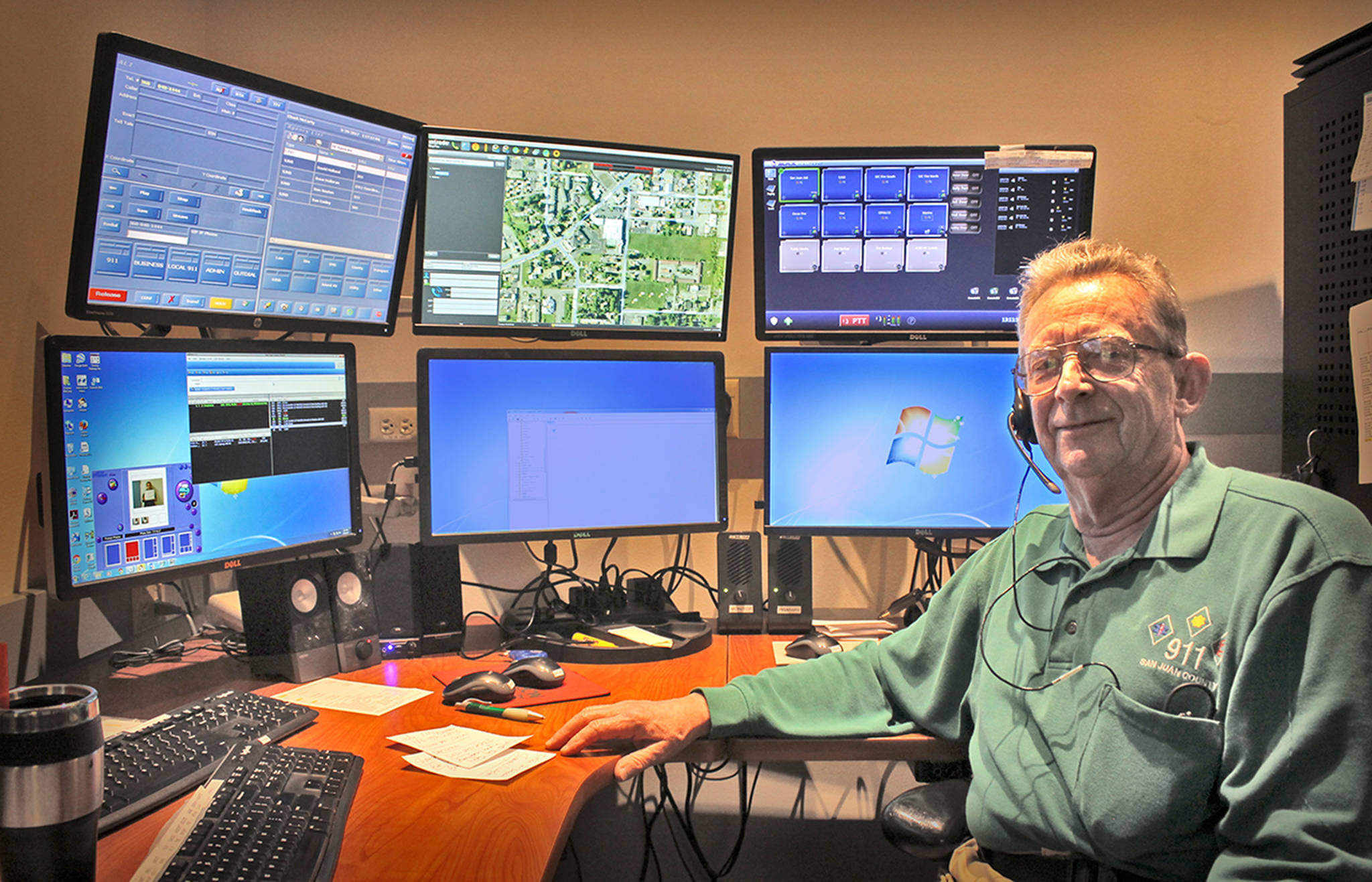Behind the screened counter at San Juan County Sheriff’s Office, in a darkened nook, Chuck McCarty has been answering 911 calls for 21 years. A public party to celebrate his retirement will follow his last day of service, on April 12, at Downriggers.
“Uh oh, five cows wandering,” he read from one of six computer screens he monitors, on March 29, with one other dispatcher per shift.
In a county of about 16,000 fulltime residents, those are the kinds of calls McCarty fields, as well as noise complaints, car break-ins, the occasional assault, and every few years, he said, a murder.
Those are the tough calls, as well as when he gives CPR directions over the phone. Sometimes it works, and survivors thank him in person, other times it doesn’t.
“This is the kind of job, where sometimes you go home and you feel pretty good, and sometimes you go home and you think, ‘Oh geez, I could have done this better,’ explained McCarty between calls.
In 1996, McCarty landed the job he claims he sort of fell into, after serving as an Army medic in Vietnam, then working in an emergency room in California.
Back then, he transferred calls through a system similar to a telephone switchboard. Today’s computerized system includes a map to show call locations, pre-set radio pagers to call service units on each island and a way to assign calls to those units, like police, fire and EMS. The former system is still at San Juan Island Fire and Rescue on Mullis Street for emergencies, like the sheriff’s office fire, seven years ago.
For 12 years, McCarty tracked evidence and property, including crime scene photos and mugshots. From 2003 to 2015, he was a volunteer reserve deputy, ultimately leaving the position due to a “philosophical decision,” he said. For 40 years, McCarty trained and taught aikido — a nonviolent Japanese martial art. Carrying a firearm seemed to contradict those views.
“He has so many unique qualities — the military, martial arts, photography; it’ll be hard to recreate,” said Tom Eades, one of the county’s nine other dispatchers.
Dispatchers like them work with outside agencies like the U.S. Navy for medical evacuations during bad weather and to dispose of hazardous or explosive materials. Once, said McCarty, someone brought in an artillery shell from English Camp, which Navy officers determined was from the Pig War.
When he was interviewed for the job, hiring managers asked if McCarty had a sick sense of humor, to help deal with the stress of life-or-death situations.
“I said ‘yes, I have a sick sense of humor,’ and have been proving it ever since,” he said.
McCarty posts “Chuck Watch” signs to mimic most-wanted posters in the main part of the sheriff’s office. In one, he holds another officer hostage with a detonator aimed at his head; in another, he wears a tinfoil hat while answering calls for “cyber security.”
In about a week, McCarty can focus on relaxing, like reading his average two books a week, exercising at San Juan Fitness and spending time with his wife of 18 years, D.T.
“It’s a lot of stress, sometimes; you have trouble sleeping. I won’t mind missing that,” said McCarty.




